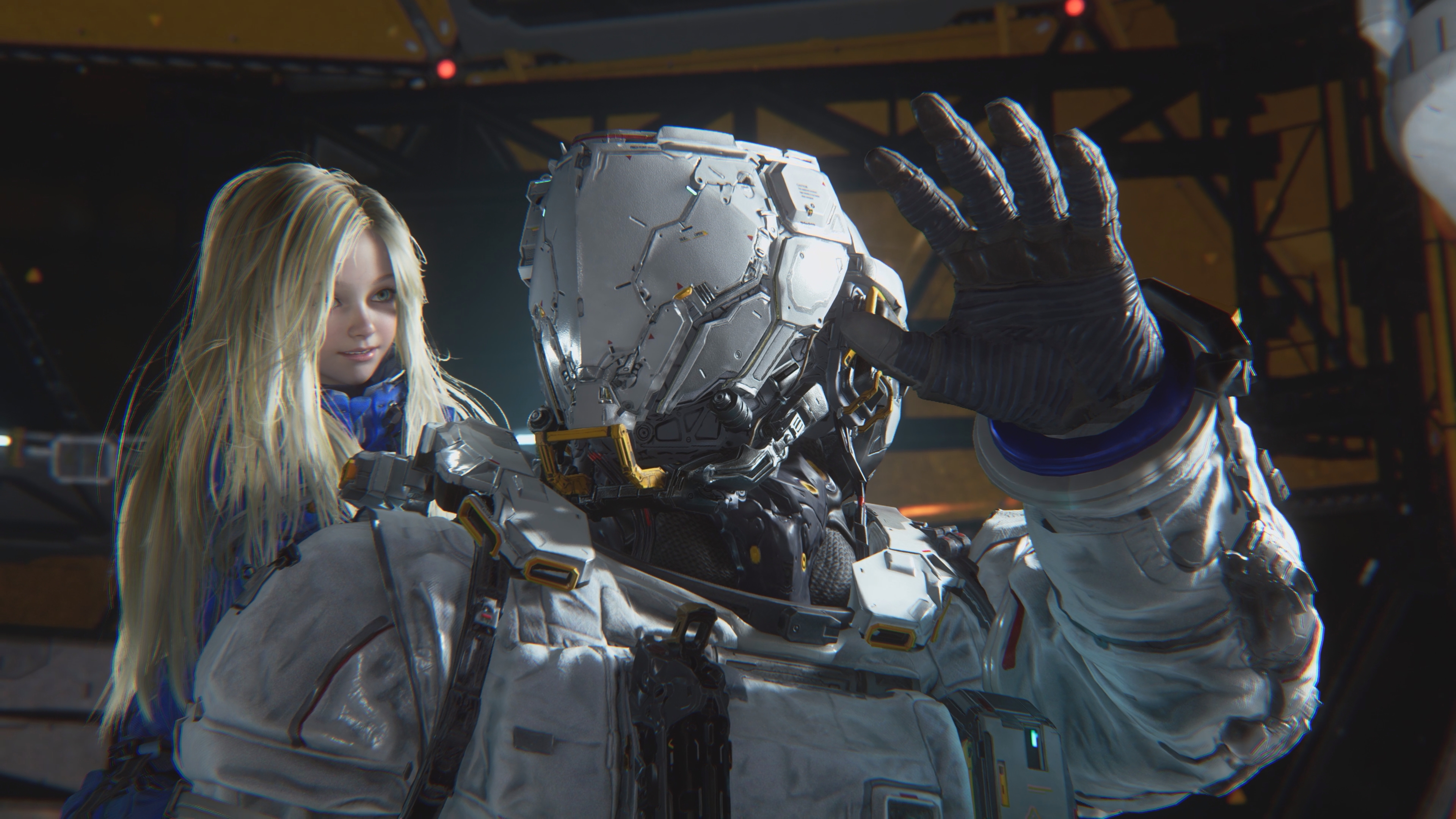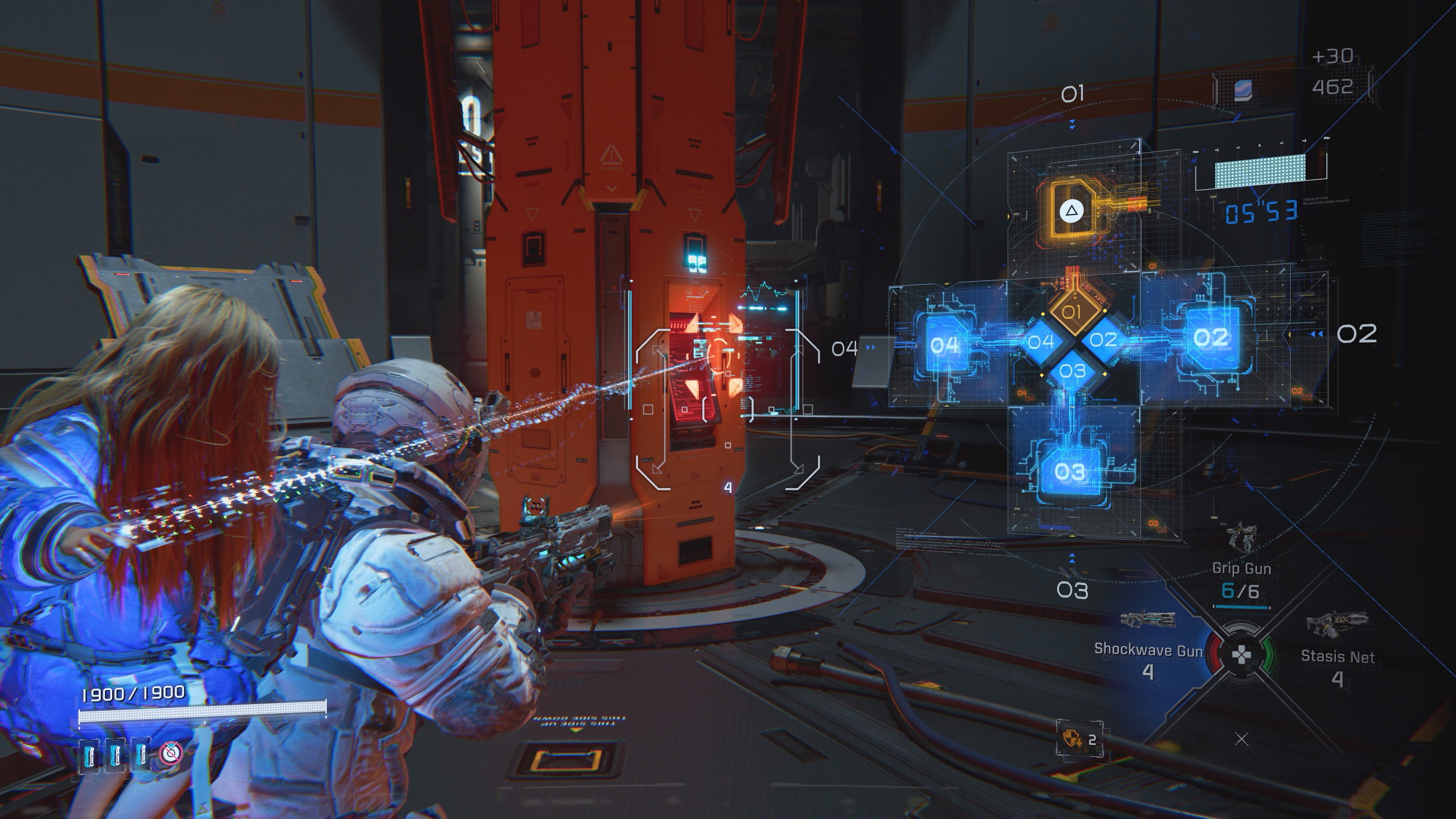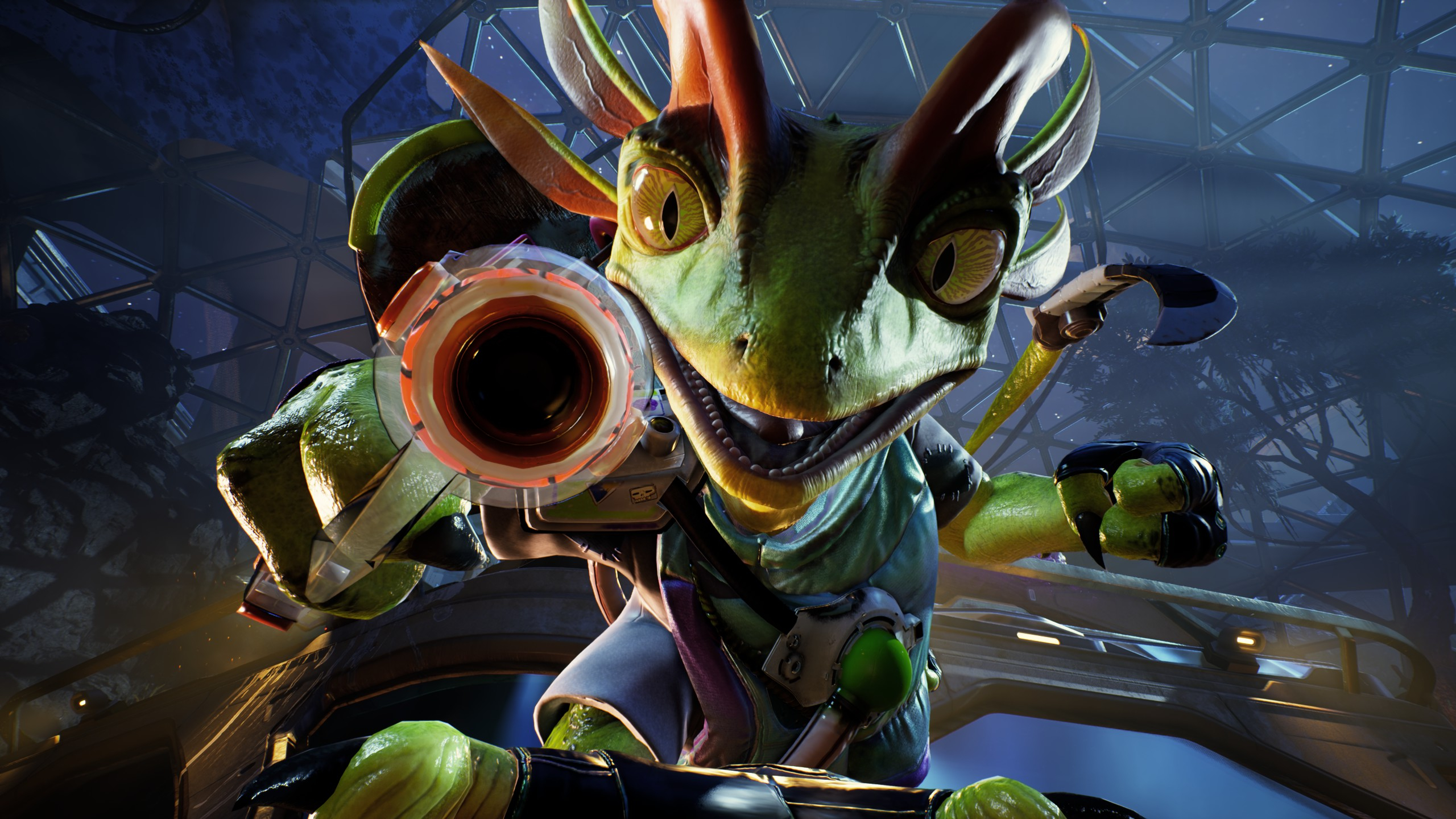After nailing a quirky PS2 throwback with Kunitsu-gami, Capcom's Pragmata has the charming energy of an Xbox 360-era shooter like The Darkness or Syndicate
Time to hack the whole dang moon.

Keep up to date with the most important stories and the best deals, as picked by the PC Gamer team.
You are now subscribed
Your newsletter sign-up was successful
Want to add more newsletters?

Every Friday
GamesRadar+
Your weekly update on everything you could ever want to know about the games you already love, games we know you're going to love in the near future, and tales from the communities that surround them.

Every Thursday
GTA 6 O'clock
Our special GTA 6 newsletter, with breaking news, insider info, and rumor analysis from the award-winning GTA 6 O'clock experts.

Every Friday
Knowledge
From the creators of Edge: A weekly videogame industry newsletter with analysis from expert writers, guidance from professionals, and insight into what's on the horizon.

Every Thursday
The Setup
Hardware nerds unite, sign up to our free tech newsletter for a weekly digest of the hottest new tech, the latest gadgets on the test bench, and much more.

Every Wednesday
Switch 2 Spotlight
Sign up to our new Switch 2 newsletter, where we bring you the latest talking points on Nintendo's new console each week, bring you up to date on the news, and recommend what games to play.

Every Saturday
The Watchlist
Subscribe for a weekly digest of the movie and TV news that matters, direct to your inbox. From first-look trailers, interviews, reviews and explainers, we've got you covered.

Once a month
SFX
Get sneak previews, exclusive competitions and details of special events each month!
I mean it as a compliment when I say Capcom's Pragmata has the makings of "one of those 7 out of 10 games," a vein of perfect weekend plays that we don't see enough of from big budget developers anymore. This is just a snap judgment—I've only played about 20 minutes of the long-gestating action game in a new demo at Capcom's offices, and have little idea of how much depth or variety await in the full game. But that brief play session was enough to evoke fond memories of playing a quirky shooter from the Xbox 360 era.
You know the type, even if you were born after the Red Ring Plague slayed millions of consoles. These aren't the games that look the best or are the most ambitious. Instead, they asked questions like "what if you had a pair of demonic arms that could eat your enemies' hearts?" or "what if we made a whole videogames out of a dick joke?" Their quirks are quirky enough and their big swings are big enough to make up for their other deficiencies.
A "regular" 7/10 (or a 70%, on the PC Gamer scale) is competent but disappointingly safe and forgettable; one of those 7s might be a 5 in your head but a 9 in your heart.
Pragmata's quirk is that every enemy you fight in the game first must be hacked to deal it damage. At first blush, the shooting itself is unremarkable—you start with a slow-firing pistol that runs dry quickly and has to slowly recharge its ammo. It's punchy, but by itself would quickly grow boring to fire (though perhaps an upgrade tree later in the game will introduce more nuance). This is a shooter where the shooting itself clearly isn't the priority.
It's more about learning to juggle: keeping one eye on the enemy while you perform a hacking minigame, navigating a floating cursor around an augmented reality grid to hit bonuses (like extending the amount of damage an enemy takes or how long it's weakened) on your way to a target. Maybe you'll have to smack the dodge button mid-hack as an enemy lunges at you, or you'll have to be ready to aim and fire the second you complete the hack to maximize your damage window.
Neither the hacking or the shooting seem immediately compelling enough to make Pragmata a memorable shooter, but being forced to do them simultaneously has potential. I hope the hacking game quickly reveals more layers as you get into the game, like certain targets on the grid opening up specific weak spots on enemies or making them susceptible to certain types of damage. Like a real juggling act, it's going to need constant escalation to stay impressive.
Three balls is just the baseline—if I'm not keeping five bowling pins and two chainsaws in the air by the end of the game, I'll be disappointed.
Keep up to date with the most important stories and the best deals, as picked by the PC Gamer team.
On your toes
The other two weapons I picked up in Pragmata's demo, a short-ranged shotgun and an enemy-slowing trap thrower, only had a few shots each and had to be discarded once they were used up. If the rest of the game's armory is equally expendable, that's another quirk that seems like it could reinforce Pragmata's doing-multiple-things-at-once idea.
Rather than rotating through all my cooldowns Doom Eternal-style, I'd rather Pragmata force me to go scrambling around the battlefield for fresh guns at the same time I'm hacking an enemy. Maybe hacking will restore ammo? Or make enemies weak to specific weapons?
The gleaming lunar station Pragmata's set on recalls a much-gussied-up P.N.03, a troubled action game that Capcom legend Shinji Mikami and his team rushed out in a matter of months before shifting focus to Resident Evil 4. Pragmata seems like it was troubled in the opposite way, taking some six years of development to arrive at the not-exactly-mind-blowing combination of hacking robot baddies and then shooting them. But the fact that it's finally coming out makes me hopeful that Capcom gave it the time it needed to figure out how to do something weird, funny or dextrously demanding with its juggling act.
While perhaps Pragmata will surprise, I'm predicting a lot of samey white corridors and computer terminals, a pleasantly clean NASAcore aesthetic again evoking the era of shooters that were mostly built out of linear hallways and small rooms where you dispatched 1-3 waves of enemies before moving on. I'm well up for that straightforward sort of action as long as the years Capcom spent noodling on this game deliver a constant stream of new and confounding objects to juggle in each room. In just 20 minutes I saw two hacking minigames—the one used in combat, and another sequence of button presses used to hack open doors.
I hope it's got stuff waiting in the wings to elevate it beyond the basic hacking powers of, say, the 360-era Syndicate, which underdelivered on the premise in its campaign (but was still one of those 7s for some people thanks to a much cleverer co-op mode).
The best possible outcome for this game in my mind is that it keeps introducing new types of hacking minigames every hour. I want a comical variety of hacking. I want developer Johnnemann Nordhagen to be compelled to follow-up The Museum of Mechanics: Lockpicking with a hacking equivalent that has a whole wing just dedicated to Pragmata. I want to think "there's no way they can come up with another, different way to hack something" three separate times, moments right before Pragmata comes up with another, different way to hack something.
That's the path to a heart 9 from me; I have no idea if Pragmata's going to get there, but I remain happy that between it and Kunitsu-gami (and, heck, Exoprimal), Capcom is one of the few billion-dollar game developers still willing to throw out a curveball.

Wes has been covering games and hardware for more than 10 years, first at tech sites like The Wirecutter and Tested before joining the PC Gamer team in 2014. Wes plays a little bit of everything, but he'll always jump at the chance to cover emulation and Japanese games.
When he's not obsessively optimizing and re-optimizing a tangle of conveyor belts in Satisfactory (it's really becoming a problem), he's probably playing a 20-year-old Final Fantasy or some opaque ASCII roguelike. With a focus on writing and editing features, he seeks out personal stories and in-depth histories from the corners of PC gaming and its niche communities. 50% pizza by volume (deep dish, to be specific).
You must confirm your public display name before commenting
Please logout and then login again, you will then be prompted to enter your display name.


